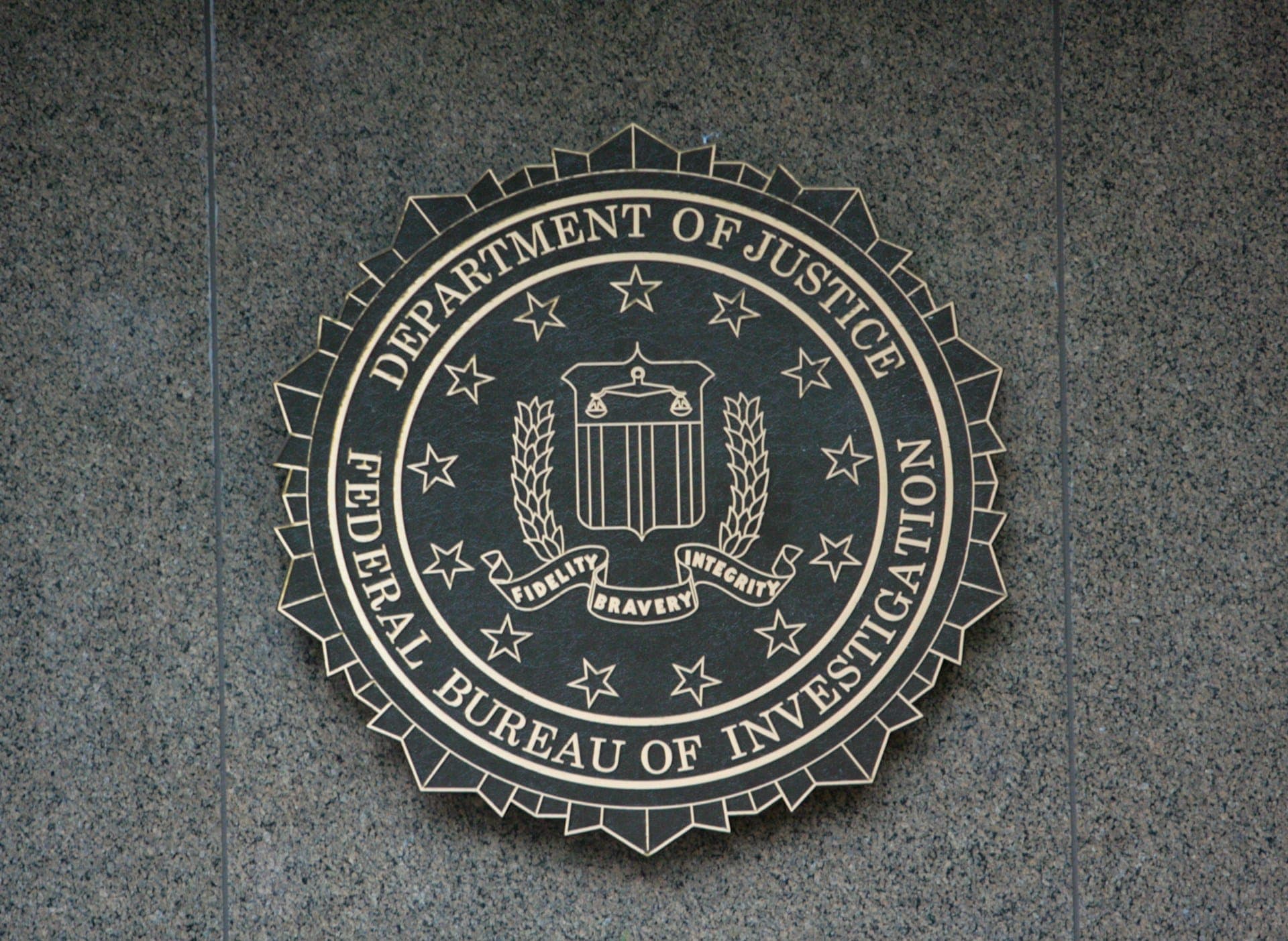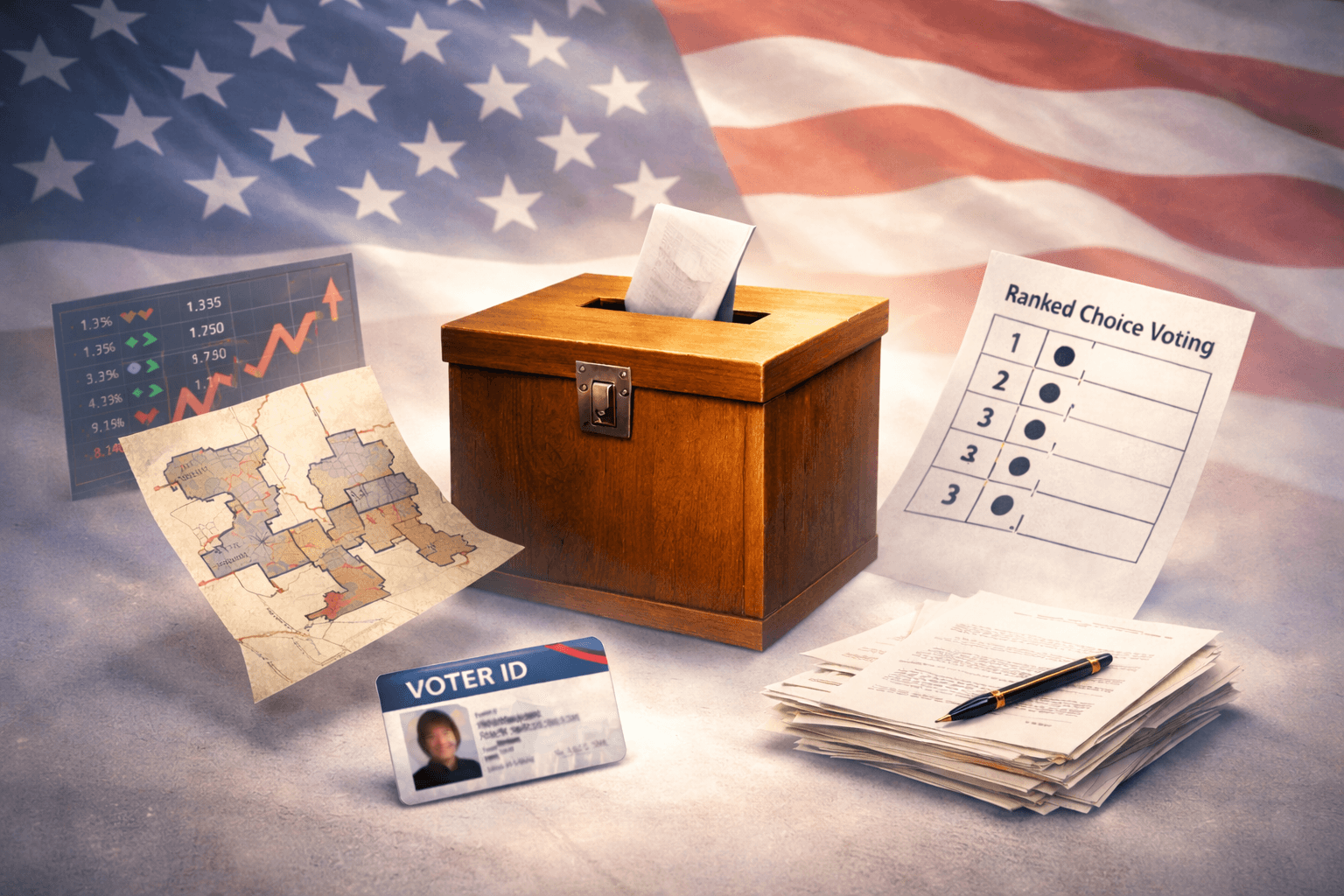Can the FBI Really Arrest Texas Democrats? Trump Seems to Think So

AUSTIN, TEXAS - It seems like the standoff in Texas over redistricting continues to escalate, as Governor Greg Abbott and other top Republicans want to see Texas Dems who have fled the state arrested and brought back so that they can redraw congressional lines.
Warrants have been issued for the civil arrest of Texas House members who have traveled to states like Illinois and New York in order to break quorum. However, these warrants have no jurisdiction outside Texas, which has prompted calls from Republicans for FBI involvement.
But what exactly can the FBI do? Does the agency have the authority to locate and arrest these Democrats? Or does this fall outside federal authority?
No Crime Committed, Say Legal Experts
The decision by Texas House Democrats to break quorum has halted efforts by Republican lawmakers to redraw congressional maps in order to give their party 5 more seats and protect their majority in the US House of Representatives.
It is a plan that has been endorsed by President Donald Trump.
Breaking quorum in the Texas Legislature is not a crime, according to multiple legal experts, including those cited by WFAA. “Breaking quorum is not illegal. It’s a legislative tactic that’s been used for generations,” said constitutional law professor Randall Erben.
More importantly, it is not a felony committed across state lines, which would generally warrant the FBI’s involvement. The FBI does not enforce state civil warrants and only intervenes when federal laws are violated.
The Texas House allows for the issuance of civil arrest warrants to compel attendance, but such warrants are only enforceable within state lines – a key limitation that Democrats have leveraged by traveling to states where Democratic officials have refused to cooperate.
Gov. Abbott ordered the Texas Department of Public Safety to locate, arrest, and compel absent House members to return to the state capitol building, citing his authority under the Texas Constitution.
“These lawmakers took an oath to serve their constituents, not flee the state to subvert democracy,” he said in a statement. Civil arrest warrants were issued by Texas House Speaker Dustin Burrows, but no state is legally required to recognize or act on these warrants.
The House has also imposed fines of $500 per day for each absent lawmaker.
Abbott has threatened to have the seats of Democratic lawmakers declared vacated. Texas Attorney General Ken Paxton and other Republicans argue Democrats’ absence constitutes abandonment of duty and say they should be removed and replaced.
Paxton cited a non-binding attorney general opinion from 2021 suggesting that such forfeiture is legally justifiable.
Republicans Accuse Democrats of Bribery, Seek FBI Help
Texas Republicans assert that Democrats are guilty of more than breaking quorum. They claim that any aid absent lawmakers have received could potentially violate Texas bribery statutes related to fundraising efforts by and for the lawmakers.
US Sen. John Cornyn has officially requested the FBI’s help in locating Texas Democrats:
Specifically, I am concerned that legislators who solicited or accepted funds to aid in their efforts to avoid their legislative duties may be guilty of bribery or other public corruption offenses.," he said.
Under Texas law, offering or accepting a “benefit” to influence a public servant’s duty could be prosecuted as a second-degree felony. However, legal analysts argue that proving criminal intent would be extremely difficult, especially in the context of political protest.
Paxton and Abbott are asking the Texas Supreme Court to weigh in, claiming that high-profile Texas Democrat Beto O’Rourke has illegally funded “runaway Democrats.” Abbott says a decision in their favor will be justification to remove these lawmakers from office.
No formal federal charges have been filed, and the FBI has not confirmed whether it will act on Cornyn’s request. President Donald Trump has signaled he would support FBI involvement by saying it is something “they may have to” do.
Democratic lawmakers say their actions are justified in the face of what they call a gerrymandering power grab designed to suppress minority voters. “We’re standing up for representative democracy,” said Texas Rep. Gina Hinojosa.
If it costs us fines or even our seats, so be it.”
So, What Can the FBI Actually Do?
The FBI’s jurisdiction is limited to enforcing federal laws. The FBI can assist state authorities with locating individuals in certain situations, but it cannot enforce state legislative procedures such as quorum rules or civil arrest warrants.
“The FBI’s role would be strictly supportive — not directive,” said former FBI official Frank Montoya Jr., speaking to Axios. “Unless there's a clear federal crime, there’s no basis for the Bureau to act independently.”
Here is a quick review and breakdown:
- The FBI does not enforce state law or nationalize civil arrest warrants. Its jurisdiction is over federal crimes, not legislative absenteeism or breakdowns of quorum.
- In limited circumstances, the FBI may assist state law enforcement—for instance, by helping locate individuals who fled across state lines or are evading legal processes.
- In situations where the FBI assists state law enforcement, particularly in matters that do not relate to federal law, the agency does not initiate enforcement.
- President Trump and Senator Cornyn have publicly endorsed this possibility: Trump said the FBI “may have to” get involved, and Cornyn formally requested the Bureau’s help.
- The FBI has not confirmed any involvement or intent to open a federal case as of now.
A Political Fight, Not a Federal Case
Despite dramatic rhetoric and calls for FBI intervention, the underlying conflict remains a state-level political battle over redistricting and legislative power. Unless new evidence emerges to support federal criminal charges, the FBI has no reason to pursue arrests.
However, the agency still may act as an auxiliary to Texas law enforcement.
 Shawn Griffiths
Shawn Griffiths






